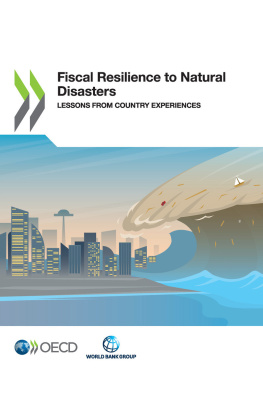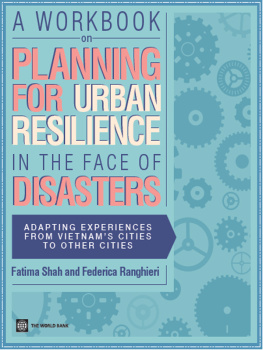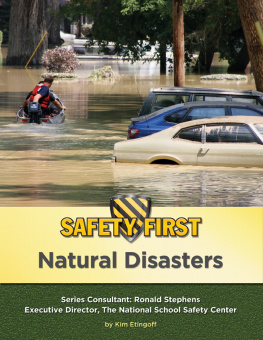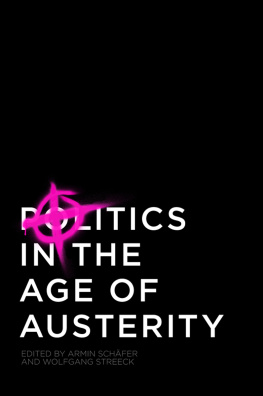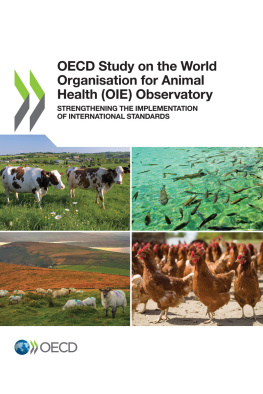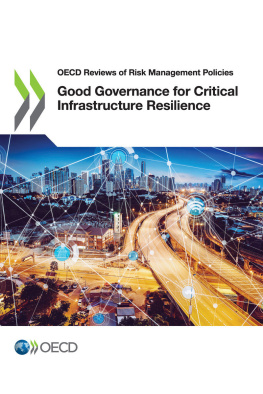OECD and The World Bank - Fiscal Resilience to Natural Disasters
Here you can read online OECD and The World Bank - Fiscal Resilience to Natural Disasters full text of the book (entire story) in english for free. Download pdf and epub, get meaning, cover and reviews about this ebook. year: 2019, publisher: OECD Publishing, genre: Politics. Description of the work, (preface) as well as reviews are available. Best literature library LitArk.com created for fans of good reading and offers a wide selection of genres:
Romance novel
Science fiction
Adventure
Detective
Science
History
Home and family
Prose
Art
Politics
Computer
Non-fiction
Religion
Business
Children
Humor
Choose a favorite category and find really read worthwhile books. Enjoy immersion in the world of imagination, feel the emotions of the characters or learn something new for yourself, make an fascinating discovery.
- Book:Fiscal Resilience to Natural Disasters
- Author:
- Publisher:OECD Publishing
- Genre:
- Year:2019
- Rating:3 / 5
- Favourites:Add to favourites
- Your mark:
- 60
- 1
- 2
- 3
- 4
- 5
Fiscal Resilience to Natural Disasters: summary, description and annotation
We offer to read an annotation, description, summary or preface (depends on what the author of the book "Fiscal Resilience to Natural Disasters" wrote himself). If you haven't found the necessary information about the book — write in the comments, we will try to find it.
Fiscal Resilience to Natural Disasters — read online for free the complete book (whole text) full work
Below is the text of the book, divided by pages. System saving the place of the last page read, allows you to conveniently read the book "Fiscal Resilience to Natural Disasters" online for free, without having to search again every time where you left off. Put a bookmark, and you can go to the page where you finished reading at any time.
Font size:
Interval:
Bookmark:
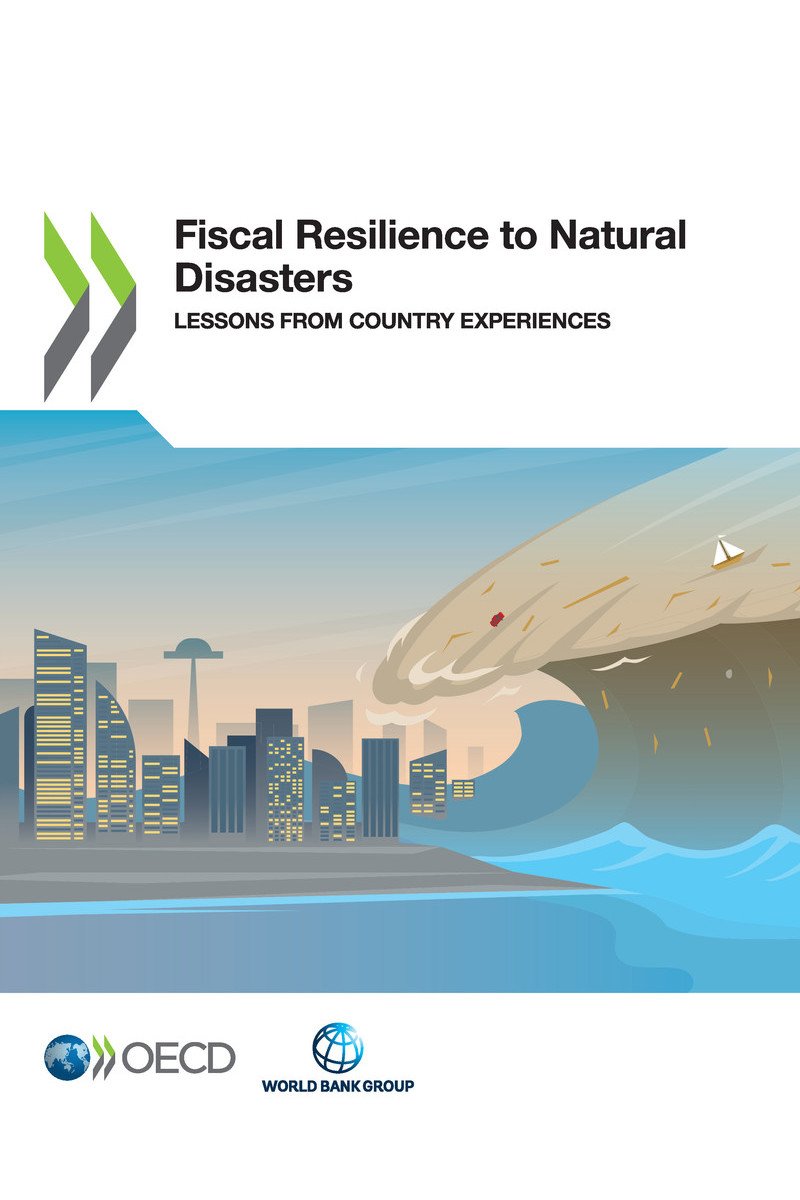
OECD/The World Bank (2019), Fiscal Resilience to Natural Disasters: Lessons from Country Experiences , OECD Publishing, Paris, https://doi.org/10.1787/27a4198a-en .
The international debate on strengthening the financial resilience to disasters is more front and center than ever before. Recurring hurricanes and floods, large-scale devastating wildfires and massive earthquakes are costing lives and create a significant negative impact on peoples well-being and economic development.
This joint report by the OECD and the World Bank takes stock of how a sample of governments in OECD and non-OECD countries manage the implications of natural disasters for public finances. The findings of this joint work were presented to Finance Ministers as part of the Asia-Pacific Economic Cooperation (APEC) Finance Ministers Meeting in Port Moresby, Papua New Guinea in October 2018. Yet many countries are still struggling with the challenge of developing more effective financial instruments to counter the economic impact and strengthen financial resilience to natural disasters. Disasters simultaneously affect the government balance sheet from two sides. In their efforts to contain negative impacts on social and economic welfare, governments have often assumed the lions share of recovery and reconstruction costs. At the same time, disasters can also reduce government revenues due to disruption in economic activities. Boosting Fiscal Resilience: Managing Disaster-Related Contingent Liabilities in Public Finance Frameworks makes the case for how integrating disaster and climate risk in fiscal planning and budgeting frameworks in advance helps make countries more financially resilient.
This report - jointly prepared by teams in the OECDs Public Governance Directorate and by the World Bank Groups Disaster Risk Financing and Insurance Program under the Finance, Competitiveness, and Innovation Global Practice - draws on a set of nine in-depth case studies, completed through a survey gathering views directly from policy makes in all countries. At the OECD, this work was carried out in co-operation with the OECD High Level Risk Forum and the Working Party of Senior Budget Officials. The report also drew on the OECDs 2014 Recommendation on the Governance of Critical Risks and the 2017 Recommendation on Disaster Risk Financing Strategies. At the World Bank, this work is contributing to a growing institution-wide focus on better risk management, including a large and growing lending portfolio of supporting countries in improved risk management, the Global Crisis Risk Platform, the Climate Change Action Plan, and the newly established Global Risk Financing Facility.
Findings of the country cases confirm that for many countries, the rehabilitation of damaged public assets is one of the largest drivers of disaster-related contingent liabilities. Central government support to local governments, often ad hoc and unplanned, can create large implicit contingent liabilities. The research and analysis in this report will support government officials with practical lessons and insights in more proactively managing these liabilities. Despite efforts to set clear rules for assistance and compensation for losses, disaster-related liabilities tend to rise beyond what many governments have committed to pay, especially when extreme events occur. The capacity of governments to assess and quantify the expected expenditure, creating conditions that support resilience, sound fiscal planning, and pre-arranging financial mechanism to cost-efficiently meet losses that cannot be reduced, determines the experience of governments when faced with a shock.
This report will be of interest to public officials, financial planners, disaster risk specialists, business communities and a general public that consider the inclusion of disaster-related contingent liabilities in fiscal planning, strengthening public and private finance strategies and increasing the transparency, and reliability of the fiscal outlook.

Alfonso Garcia Mora
Global Director,
Finance, Competitiveness & Innovation Global Practice
The Worldbank Group

Marcos Bonturi,
Director,
OECD Public Governance Directorate
This report was jointly prepared by the Organisation for Economic Co-operation and Development (OECD) and the World Bank under a project to assess the progress, achievements and existing challenges in understanding and managing contingent liabilities for governments stemming from disasters.
The project was carried out by the High Level Risk Forum Secretariat in the OECD Public Governance Directorate led by Marcos Bonturi in cooperation with the World Banks Disaster Risk Financing and Insurance Program part of the Finance, Competitiveness, and Innovation Global Practice. The project was led by Cathrine Dsire Gamper (OECD) and Benedikt Signer (World Bank) under the guidance of Stphane Jacobzone (OECD) and Oliver Mahul (World Bank). Contributions were received from Teresa Deubelli (OECD), Luis Alton (World Bank) and Juan Martinez (external consultant). Murray Petrie (external consultant) contributed to the development of the conceptual framework that led to the development of the case studies. Charlie Benson (Asian Development Bank) provided comments on the conceptual framework. Editorial support was provided Anne Himmelfarb, Randy Holden and Andrea Uhrhammer; Liv Gaunt and Raquel Paramo prepared the report for publication.
Font size:
Interval:
Bookmark:
Similar books «Fiscal Resilience to Natural Disasters»
Look at similar books to Fiscal Resilience to Natural Disasters. We have selected literature similar in name and meaning in the hope of providing readers with more options to find new, interesting, not yet read works.
Discussion, reviews of the book Fiscal Resilience to Natural Disasters and just readers' own opinions. Leave your comments, write what you think about the work, its meaning or the main characters. Specify what exactly you liked and what you didn't like, and why you think so.

